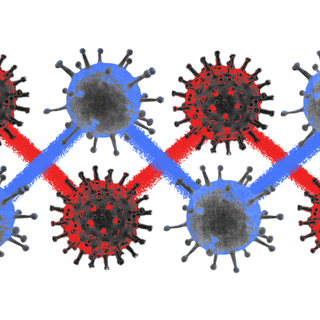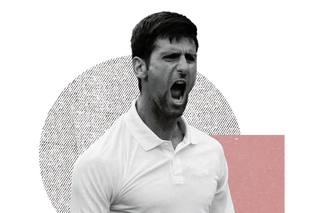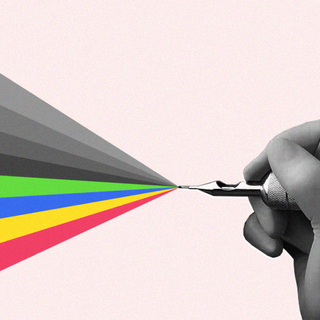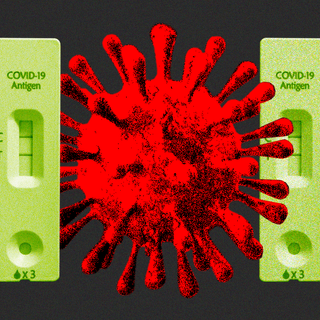
Djokovic’s Vaccine Row Shows Public Health Mandates Apply to Everyone — Even Great Athletes
Anti-vax and anti-science statements shouldn’t be discounted irrespective of how influential the person is.

The last 24 hours have marked a flashpoint in the debate on personal choice and public health in the vaccination context. The world’s No. 1 men’s tennis player Novak Djokovic was reportedly given a vaccination exemption by two medical panels to play at the Australian Open. He then boarded a transcontinental flight from Dubai to Australia, and was later denied entry over not following pandemic protocol.
This is the intersection of arguably the two most divisive things in this world: sports and vaccines. The response to Djokovic’s vaccine exemption and later visa cancellation diverges into two. One camp, the sportsperson’s ardent supporters, argue the Australian government violated his right to self-determination over his own body. That it was a matter of international aggression against a great athlete because he did nothing wrong.
The other camp, comprising Australian citizens and health experts, expressed their contention over giving someone a vaccination exemption from the start. The Australian Prime Minister Scott Morrison said in a tweet: “Rules are rules, especially when it comes to our borders. No one is above these rules. Our strong border policies have been critical to Australia having one of the lowest death rates in the world from COVID, we are continuing to be vigilant.”
“There should be no special rules for Novak Djokovic at all. None whatsoever.”
At one level, it evokes the tussle between public health and individual freedom. Mr. Djokovic has unequivocally expressed his opposition to vaccine mandates, that vaccines are a personal decision. He has proved to be a controversial figure; his most notable opinions to qualify him of this status have come in regard to science and medicine. His unwillingness to get the jab is being interpreted by some as him “standing his ground.” But it could easily pass off as irresponsibility especially at a time when the virus is worsening its grip on the world.
Secondly, there is an element of exceptionalism within the discourse that is unsettling. According to the Australian Technical Advisory Group, permissible reasons for a medical exemption “range from those suffering acute major medical conditions to any serious adverse event attributed to a previous dose of the Covid19 vaccine. For those who have recently tested positive for Covid-19, vaccination can also be deferred until six months after infection. The reason for Djokovic’s exemption is unclear,” The Guardian noted. Djokovic got his exemption from two panels of medical experts who reviewed his application on anonymity.
Related on The Swaddle:
Naomi Osaka Quitting French Open Sets an Example to Prioritize Mental Health at Work
But it feels rather limited to look at this debate from the lens of policy only. Sample this statement Djokovic’s father put out: “Novak is the Spartacus of the new world who does not suffer injustice, colonialism and hypocrisy, but fights for the equality of all the people on the planet,” calling his actions heroic. The exceptionalism of the “greatest tennis player” morphs into mythic proportions.
Other players competing in the Australian Open arrived before Christmas to meet the quarantine requirements. Natalia Vikhlyantseva, a Russian player ranked 195th, announced her withdrawal last month since she had been vaccinated with Sputnik V, which was developed in her home country but is not recognized by the Australian government.
“I don’t care how good a tennis player he is. If he’s refusing to get vaccinated, he shouldn’t be allowed in,” Stephen Parnis, a former vice-president of the Australian Medical Association, tweeted. “If this exemption is true, it sends an appalling message to millions seeking to reduce #COVID19Aus risk to themselves & others. #Vaccination shows respect, Novak.” To some, it may feel like a lack of deference to people’s sufferings.
Arguably, this is not about the policy of vaccine mandates, but the double standards of a policy itself. That some people are required by law to quarantine and others aren’t — solely on the basis of how good an athlete they are. Djokovic is a 20-time Grand Slam tournament champion who was set to defend his title; some go on to call him the greatest athlete to wield the racket. But things get unnerving when Djokovic’s stardom and athletic luster are used as a metric to allow him entry, or champion for his cause. Someone called these mandates “tyrannical” because a player as “fit” as Djokovic’s was denied entry. It is but one dimension of how influential people and their clout shape people’s responses to global issues.
It’s not like sportspersons don’t deserve health exemptions. Consider this: Naomi Osaka was disqualified from playing when she refused to sit for a press conference citing mental health. Djokovic, who has been vocally anti-vax and anti-science, received an exemption despite the health risks. The grey area, of athletes protecting their personal choice and health while balancing public health requirements, doesn’t have to be so complicated.
It also boils down to one thing: at a time of a global pandemic, should famous people who actively endorse anti-science and anti-vaccine statements be shrouded from scrutiny? Arguably not, because even greatness cannot be viewed in silos.
Saumya Kalia is an Associate Editor at The Swaddle. Her journalism and writing explore issues of social justice, digital sub-cultures, media ecosystem, literature, and memory as they cut across socio-cultural periods. You can reach her at @Saumya_Kalia.
Related


Why Europe Is Banning Colored Ink Tattoos
